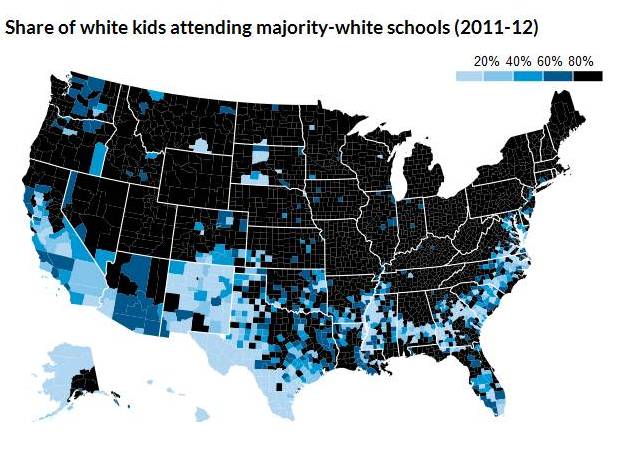For the first time minority students are the majority in U.S. schools, but segregation still exists, with white, African American and Hispanic students often attending different schools, Emily Badger reports for The Washington Post. County-level data is now available from The Urban Institute, using information from the Department of Education's National Center for Education Statistics, to highlight where students remain segregated. (Urban Institute map: For an interactive version click here)
"A couple of patterns immediately stand out, but it's important to
distinguish what's driving them," Badger writes. "Large portions of the West, the Great
Plains and the Midwest appear on these maps as if they're doing a great
job integrating minority students. But that's largely because there are
few minorities living there. Conversely, it appears in these same places
as if nearly all white children are attending majority-white schools.
But that's due to their underlying demographics as well." (Urban Institute map: For an interactive version click here)
Reed Jordan, a research assistant at the Urban Institute, told Badger, "One thing that this map doesn’t show is that there are two forms of
segregation going on: one is by race and the other is by income. It really isn’t just that
black students attend schools where most of the other children are of
color. It’s that black students attend schools where most of the other
children of color are poor." (Urban Institute map: For an interactive version click here)
Margery Austin Turner, a senior vice president at the Urban Institute told Badger, "This isn’t just a feel-good issue or 'gee what are we doing wrong with
respect to minority kids?' Our country is becoming
majority-minority. We all need to know how to talk to each other and
work with each other, and appreciate each others' perspectives. If we’re
not giving our kids the opportunity to learn that when they’re young
and open-minded, it’s not good for our whole country’s future." (Read more)



No comments:
Post a Comment